As a fun weekend piece, we wanted to clarify what the Intel Xeon 6 R1S means. A few weeks ago, we showed off the ASRock Rack GNRD8-2L2T, a motherboard for the upcoming Intel Xeon 6, codenamed “Granite Rapids.” In that piece, we noted that if you have an R1S CPU, you can have up to 136 PCIe Gen5 lanes. Folks were confused by R1S, so we wanted to clarify this since Intel has something really neat that many readers are going to gravitate to.
Clarifying the Intel Xeon 6 R1S Offering for Single-Socket Systems
When we did our big Intel Xeon 6700E Sierra Forest launch piece, we noted that we were going to have E-core, then P-core versions of chips coming. Recently, Intel disclosed Granite Rapids-D or the Intel Xeon 6 SoC slated for 2025. This quarter (or in the next few weeks) we will have the Intel Xeon 6900P “Granite Rapids” where Intel will take over the performance server CPU crown from AMD EPYC with a 128x P-core design.
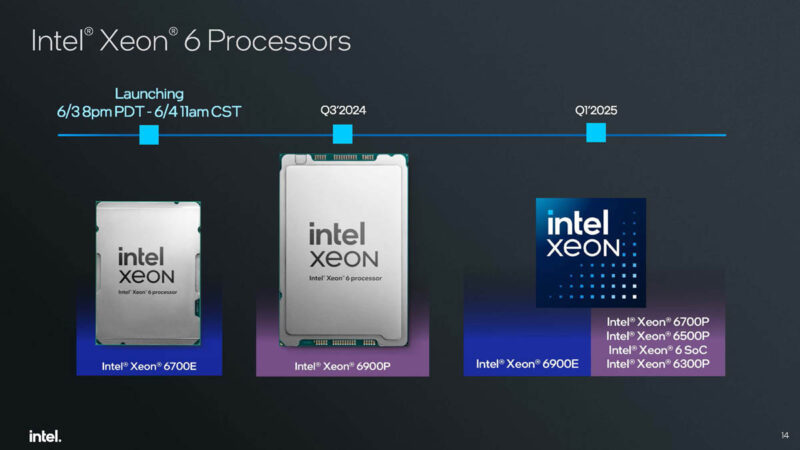
The plan, however, is for Intel to expand its product line to two sockets. It showed off the new sockets almost a year ago at OCP Summit 2023.
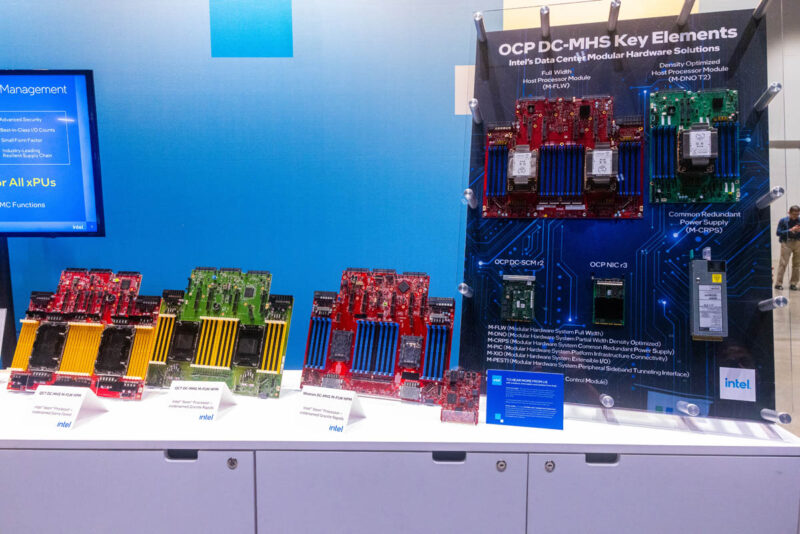
Just for some sense, here is the smaller 8-channel socket that we have seen with the Intel Xeon 6700E “Sierra Forest” chips.
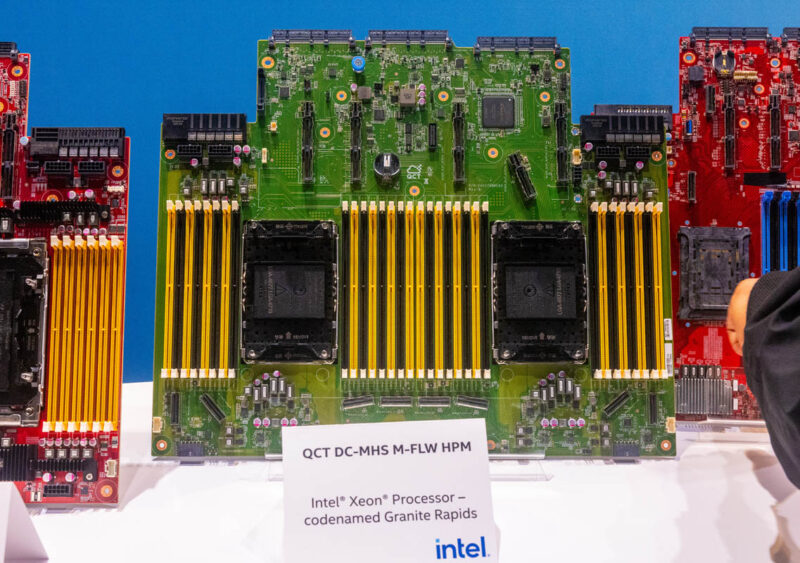
Here is the -AP bigger socket that should only scale to a maximum of two sockets but will have higher TDP, core count, and 12-channel memory. We see this as a design for maximum compute in 1-2 socket servers so we do not expect low TDP 150W parts or anything like that for these sockets.
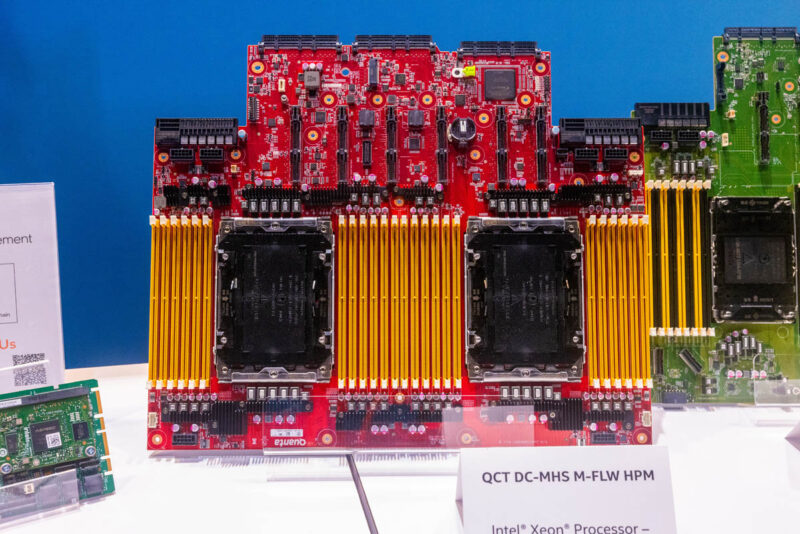
The odds are that LGA7529 will be a 400-500W TDP CPU socket.
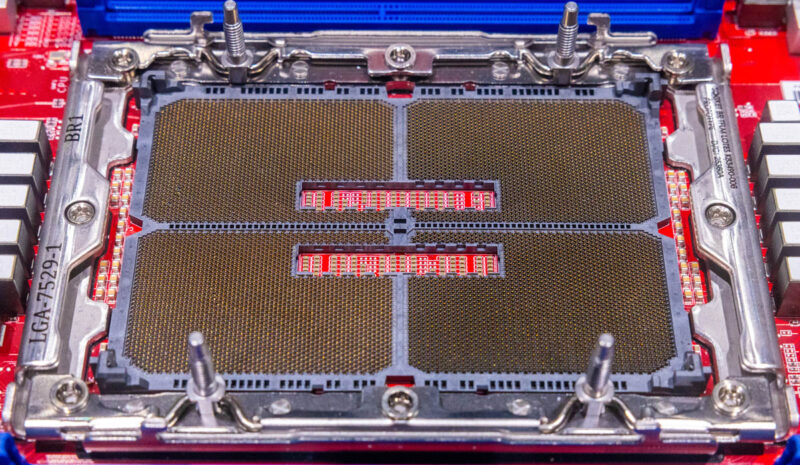
Returning to the Intel Xeon 6 slide, we already mentioned that a lot is going on here regarding “up to” being used across varying platforms. We can see the “R1S: up to 136 lanes PCIe 5.0 for single socket designs.”
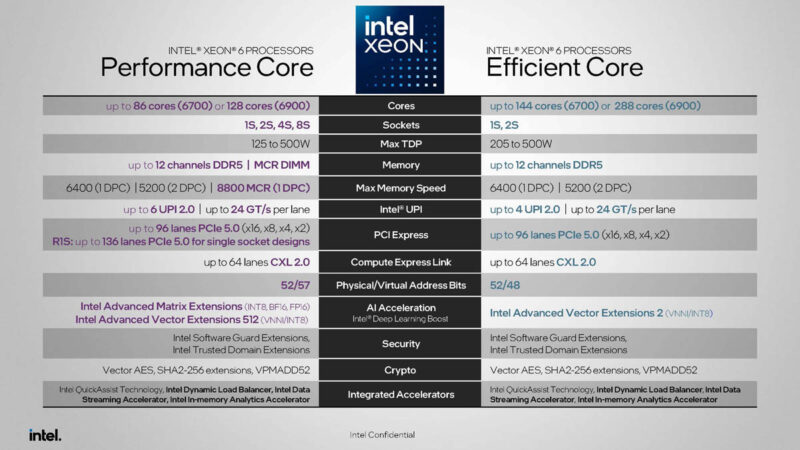
When we put that together with a socket E2 / LGA4710 motherboard like the ASRock Rack GNRD8-2L2T, we can see what is happening with R1S designs together with the slide above.
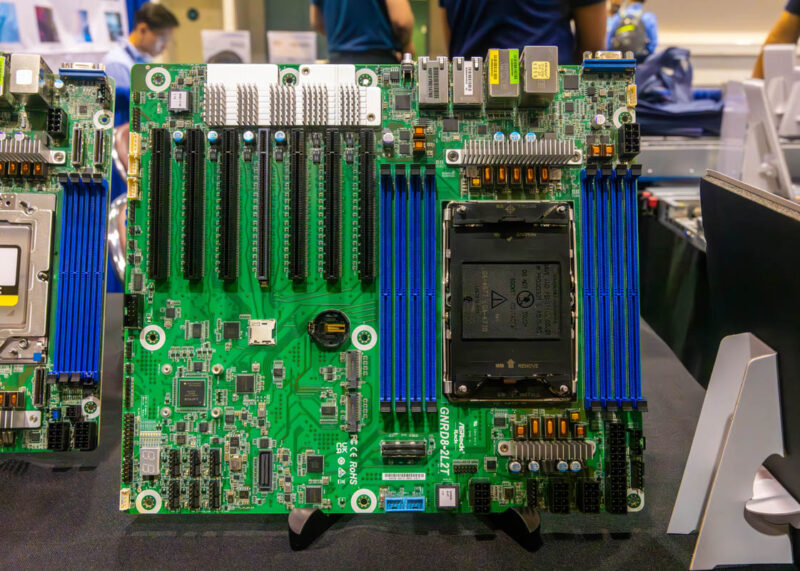
Given all this, the Intel R1S will be:
- Granite Rapids P-core based
- Single-socket only
- It is likely scaling only to ~80 cores, not 128 cores, since it is a 6700 series package
- We expect lower cost and core count CPUs as well
- We would expect the TDP for low-core-count CPUs to be in the 150-200W range, with the maximum TDP, given the LGA4710 socket, in the 350W range. Take these as approximates, but they should be close, given the socket.
- 136 lanes of PCIe Gen5
- Up to 64 lanes of CXL 2.0
- 8-channel DDR5-6400 or MCRDIMM capable
Since it is a single-socket-only part, Intel will likely do what it has with its single-socket CPU series and disable UPI.
Final Words
This should make folks very excited. If you wanted a lower-core count, modern CPU with 136 lanes of PCIe Gen5, then Intel has something coming with the Intel Xeon 6700 R1S platforms. For those running storage platforms, this is a ton of PCIe connectivity, close to 3x that of Skylake/ Cascade Lake, with roughly four times the bandwidth per lane (136 lanes of PCIe Gen5.) The AMD EPYC 8004, with 96 lanes and up to 64 Zen 4c cores, will have serious competition.
While Intel has disclosed quite a bit about the new R1S platforms, given its slides and showing motherboards at places like OCP Summit, it still has not announced what the accelerator lineup is for these R1S parts. If Intel enables accelerators, the single-socket platforms will be fantastic. AMD is hunting big sockets at hyperscalers, so it may be OK with SP6 sitting below Xeon R1S LGA4710 for some time.
Big CPUs are great, but as both Intel and AMD push toward 500W TDP CPUs this year, there will be a void below the top-end parts for some exciting solutions. Hopefully, solutions like the R1S will fill that void.
A Funny Note
As a funny note on this one, I did a search on Google for some of the other “Intel R1S ServeTheHome” content on STH, and I was greeted by a gen AI example that started talking about our Rivian R1S SUV.
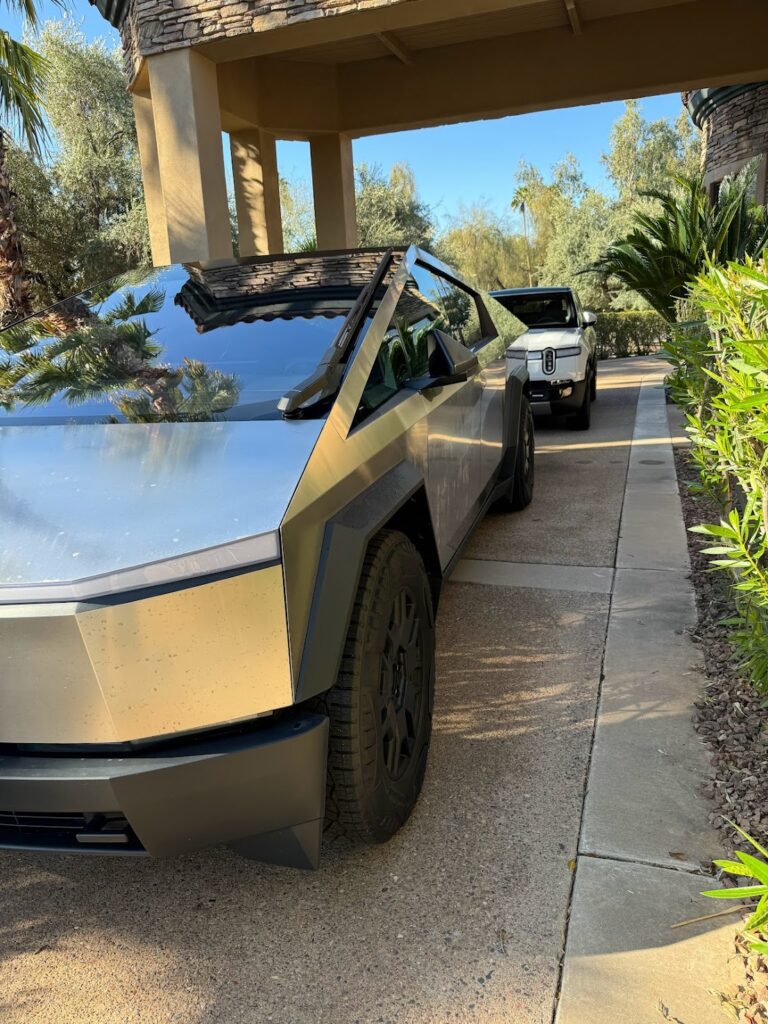

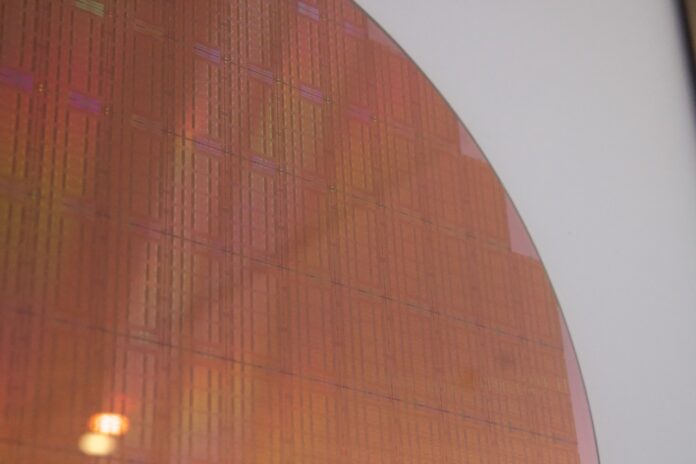
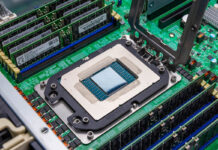


Is two DIMM per channel supported on the larger 12 channel socket? Would likely have to move to a proprietary setup with processor+memory slot daughter cards to make things fit into a standard 19″ wide rack chassis. This would also be straight forward means of scaling upward between dual, quad, and octo systems. At the high end using 512 GB DIMMs, that’d be 96 TB of main memory before factoring any additional CLX 2.0 attached memory. Figure another 4 slots per 16 CLX 2.0 lanes per socket, equates to another 64 TB of additional memory for 160 TB in a single system image. That’d comfortably house many databases in-memory though I question how many would be able to justify the expense of running such a system at such a configuration. Then again, the hardware is still inexpensive compared to what the software licensing would be.
Has the newness of the Tesla worn off yet? You mentioned a lot of stares early on but at this point, and with all the bad press on both the quality of the vehicle and its CEO, its more like seeing an Aztek or PT Cruiser these days.
Seems like a good candidate for the next “6” family workstation Xeon… W4000 series…?
Enriquo – About 6 months in, and I will just say this, I prefer it significantly to the R1S (not even close.) It is slated to get FSD this month, and then it will be in a different category. FSD on the old Model S was able to drive to and from the studio without intervention.
The nice thing is that with so many people having them now, and many customizing them, I am not spending as much time talking about it and it feels more like a normal truck from that perspective.
Most of the bad press is from folks that want to see it do poorly. Even driving a Lucid Air or our Rivian feels like stepping back in time. I had the chance to drive the F150 Lightning recently, and it felt like driving something a decade old.